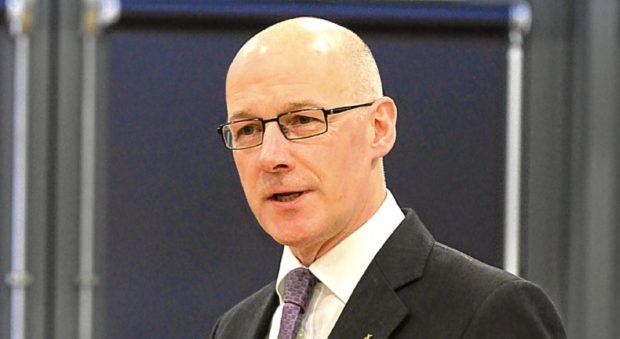It’s hard to decide what is more worrying in Professor Lindsay Paterson’s critique of the Scottish Government’s education policy.
His contention that the Curriculum for Excellence – championed though not invented by the SNP – could be disastrous for schoolchildren is cause enough for concern.
The Edinburgh University education expert has long been a thorn in this administration’s side over its approach to school reform and his charge that the CfE will widen inequality should ring alarm bells in ministers’ ears.
However, his second fear – that academics who agree with him are afraid of speaking out and challenging the left-of-centre consensus in case they lose their research grants – is about much more than education.
If, as Professor Paterson suggests, our leading intellectuals feel bound to conform to Scotland’s “very uniform political culture” in such craven fashion, this country has become a totalitarian state and that should bother everyone, whether they are interested in education or not.
To return to the CfE, however, this has been robustly defended by the SNP since its introduction in 2010, although the initial woolly thinking behind it can be attributed to the previous Labour regime at Holyrood.
Professor Paterson is not alone in lamenting the policy’s lack of academic rigour and its prioritisation of holistic ‘life skills’ over old-fashioned knowledge, which he explains as “the best that has been thought and said by human beings”.
As the professor points out, the offspring of the educated middle classes will continue to be taught in the traditional way, either by their parents or, he implies, at their elite schools.
Those children who must depend only on their teachers for knowledge will, thanks to the inadequacies of the CfE, be disadvantaged by the system. And that, warned Professor Paterson, “will make inequality of learning and of culture wider than it has ever been”.
He is not advocating a return to the days when education rescued the brightest youngsters from their backgrounds via selective schools, which is another argument. But it is worth noting that since ‘selection’ became a dirty word in Scottish education circles, the attainment gap between rich and poor children has grown ever bigger.
What Professor Paterson is doing is delivering a wake-up call and for that he should be taken seriously by the SNP, which, after all, has made much about its commitment to a fairer and more equal society. Where does equality begin if not in the place of learning?
The First Minister, Nicola Sturgeon, has also said she wants her tenure in office to be judged on her achievement in schools, specifically in closing the attainment gap. Despite these good intentions, though, there seems to be little stomach within the SNP for tackling educational failings.
The education minister, John Swinney, brushed aside the latest attack on the CfE, saying he is “absolutely confident” it is the right curriculum, which rather closes down the debate.
Criticism of schools policy has come from another quarter this week, over delays to the reform of National 4s, a relatively new qualification that has never stood up to scrutiny, not least because it is marked internally.
Top education figures have called for it to be scrapped, most recently Seamus Searson, general secretary of the Scottish Secondary Teachers’ Association, who said last month it “had reached the end of the road”.
The number of pupils signing up for the qualification is apparently in freefall and teachers have said those taking it view themselves as second-class citizens because there is no final exam. Now it has emerged that changes to National 4s have been put on hold for a further two years, thus letting down a large group of pupils, many of whom, according to Mr Searson, “need our support the most”.
Once again, the government’s complacency over its education shortcomings will only really hurt the most vulnerable schoolchildren. There won’t be too many young people in the leafy suburbs fretting about the reputational damage of a disrespected qualification because their parents wouldn’t allow them to take it.
Why is education reform so difficult for the nationalists? In giving her most senior minister, Mr Swinney, the poisoned portfolio, Ms Sturgeon at least signalled she meant business. But nothing appears to have altered the official mindset that education is not broken so doesn’t need fixing.
Unless the SNP behaves completely out of character and listens to the advice of an independent authority (Professor Paterson, in this case), the attainment gap will not be closed and Ms Sturgeon will have to add education to her legacy of missed opportunities.
Far sadder than her dismal political record, though, is the prospect of a generation of schoolchildren who she will take down with her. Through no fault of their own, they will leave their classrooms ill prepared for the competitive world of work.
